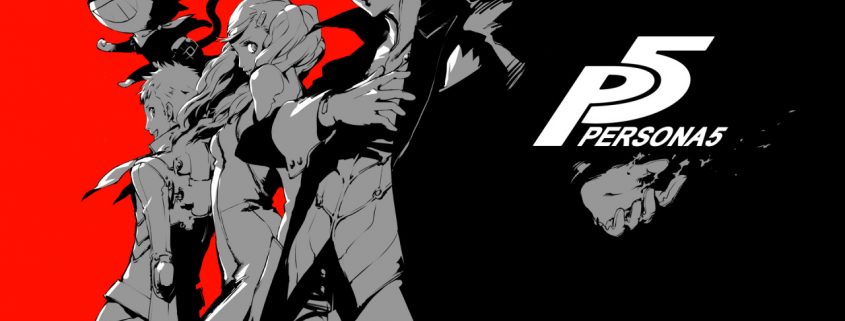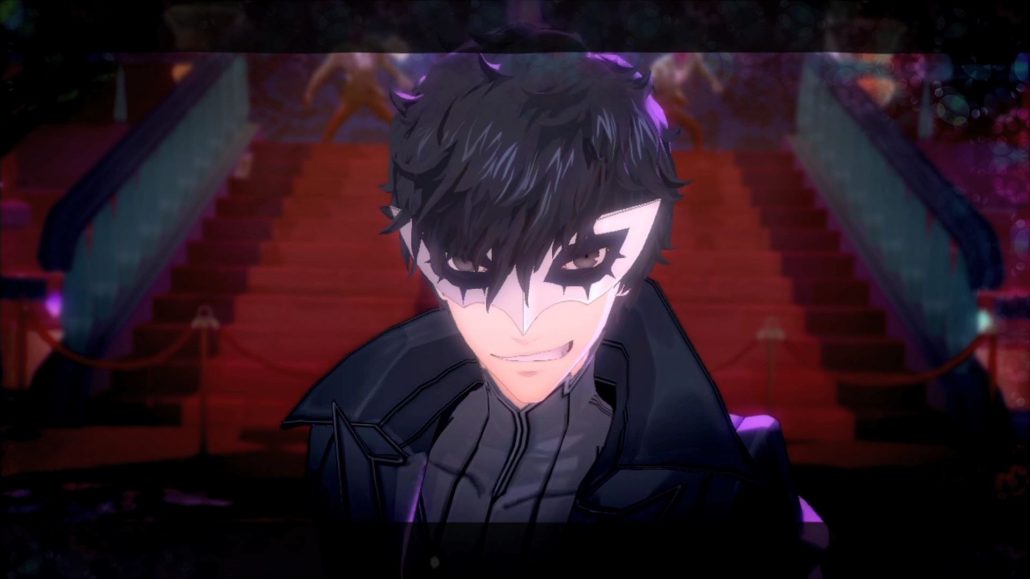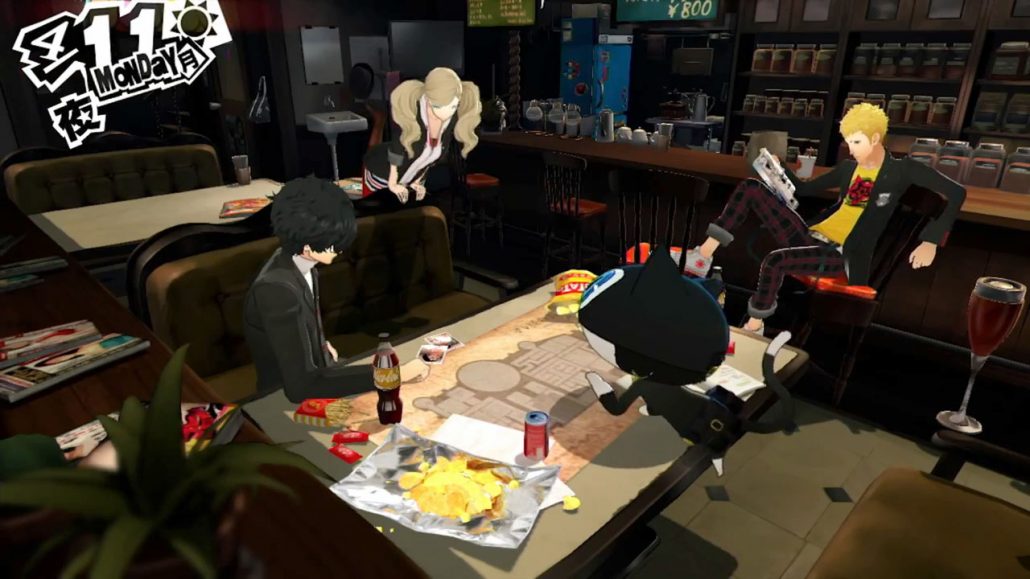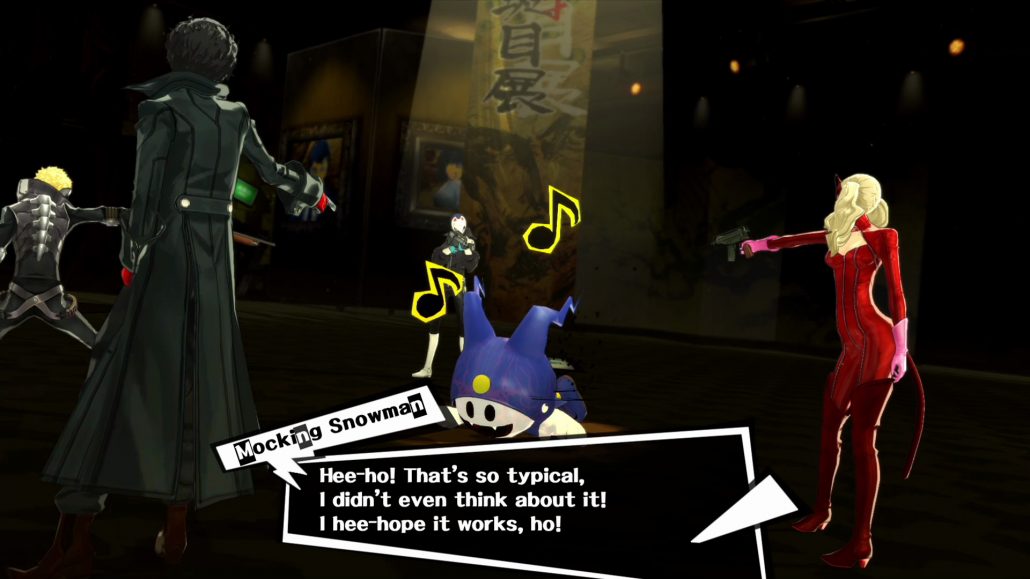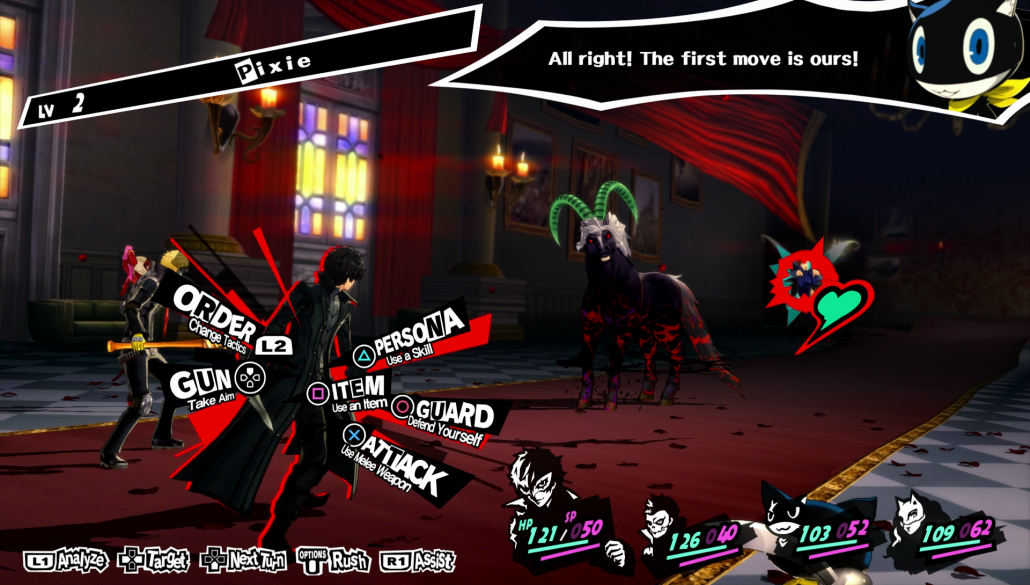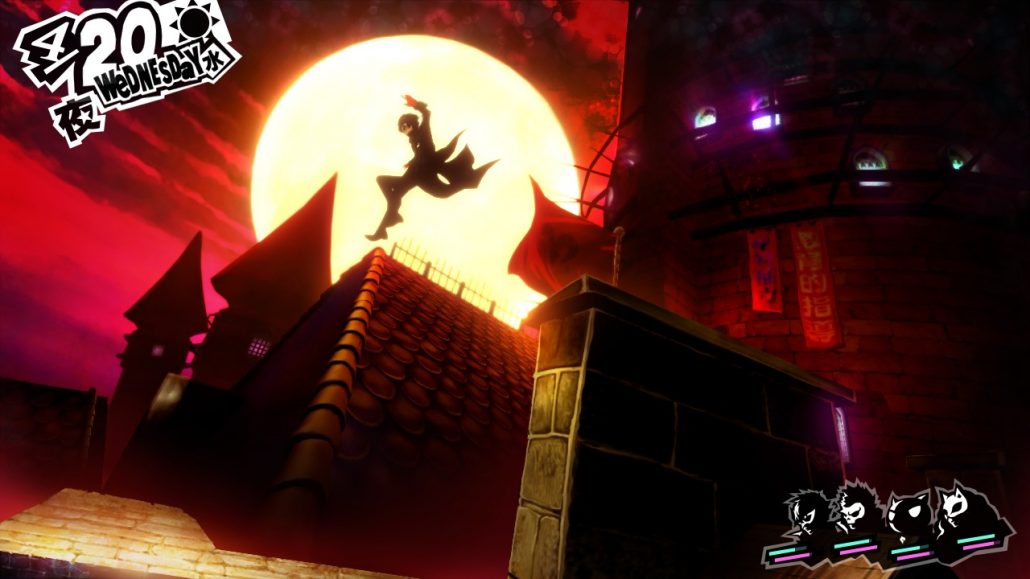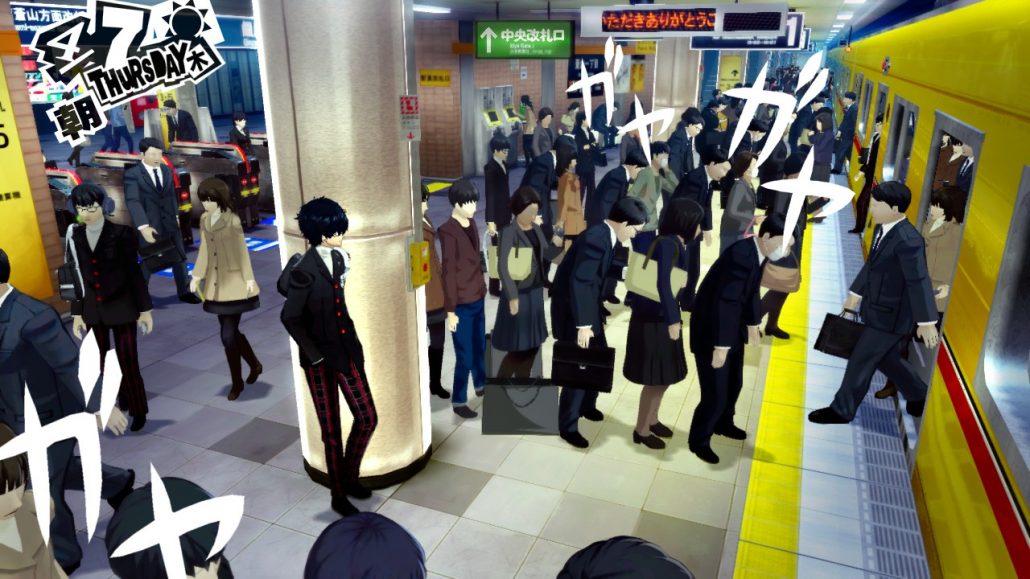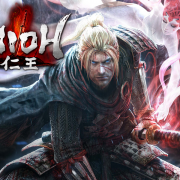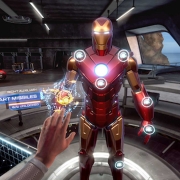Persona 5 Review
It’ll steal your heart
The Shin Megami Tensei series has been running strong for over 25 years now, with titles such as Devil Survivor, SMT Nocturne and SMT IV all becoming massive hits across the globe. But it was the Persona spin off series that really took the franchise to new heights, with Persona 4 being the shining example of how to make the perfect RPG. Now after nearly 10 years we are finally graced with the highly-anticipated sequel, Persona 5. But does it have enough charm to stand against the older entries?
Persona 5 takes place in modern day Tokyo, where strange cases of mental shutdowns are mysteriously on the rise. The player takes control of the main character (canonically called Akira) who arrives from out of town and moves in with a family friend. Due to being forced to move after being falsely accused for assault, Akira aims to just keep to himself and get to the end of the school year, but things get a tad more complicated when he accidently stumbles into another world where shadows and demons live. After being imprisoned and beaten by a shadow, he awakens to his inner self and gains access to a powerful being known as a Persona.
Realising there is injustice in the world, and that there are clear ties to the real world and the demonic one, he sets out with his rag-tag group of friends to “steal the hearts” of those who deserve justice served upon them. They become The Phantom Thieves.
The story takes a lot longer to get going than other Persona games, with a great deal of the adventure choosing to have the Phantoms take on smaller and less consequential issues. And while the smaller story does gradually work its way into a much grander adventure, P5 feels like it’s a much more personal story than other Persona games.
While in Persona 4 there was the threat of a teenager being murdered if you failed your mission, in Persona 5 the threat is that the kids might get expelled from school. While it’s still a threat of sorts, it’s no way nearly as concerning or motivating as the ramifications for failing in previous entries.
While the outcomes might be weaker than those before it, Persona 5 does a fantastic job at telling a more personal and much more sadistic story than its older siblings. P5 deals with complex issues such as suicide, abuse, manipulation, mental instability and conflicting ideals in an incredibly open yet also respectful way. These are issues that are growing ever more prevalent in modern day society, and for P5 to tackle these subjects in such a calm and collective manner is something to admire.
When Persona 5 isn’t busy charming the pants off you, you’ll be surprised to find the game is also a highly addictive RPG and high school simulator. While Akira is a powerful demon slaying thief, he’s also a high schooler who needs to study and keep his grades up. This is where Persona’s famous “duel life” system comes in. The player gets to spend their afternoons and evenings choosing what they’d like to do in the game, be it making friends, watching movies, or fighting shadows in the metaverse. The choice is completely up to the player, but they need to find the right balance between messing about with friends and fighting shadows if they want to be able to succeed in the Phantom Thieves mission of stealing someone’s treasure.
To get someone’s treasure, the Thieves first have to traverse through that person’s “Palace”, a cognitive creation of all their desires and beliefs. This is where Persona 5 makes its first great shift in the series, going from randomly generated box dungeons to fully crafted and structured original dungeons. Every Palace the team visit is a wildly different dungeon with its own charm and quirks. From castles to spaceships, the verity of locations the team gets to travel will make sure you never get too tired of the same location. Well, accept maybe Mementos.
Mementos is the games attempt to also cater to players who played P3 and P4 and liked the randomly generated dungeons that were indistinguishable from each other. In this massive dungeon, the team ride around in their cat friend who can also turn into a car (just roll with it) as they battle shadows and try to make it to the bottom floor. While this may sound great for some players, it can be an incredible chore to slog through floor after floor of the same simple dungeon layout. And while it wouldn’t be so bad if it were optional, the dungeon is mandatory for finishing the game, making it feel even more like a slog.
Ironic that a game focused so much on individuality would be home to such a bland and confirmative dungeon.
Once the player is all tuckered out with Palaces and dungeons, the game suddenly shifts into a light novel with interactive locations. After school or in the evening, the player can choose to take part in a wide range of activities to pass the time and boost their attributes. These attributes also tie into the relationships they are able to forge with other characters in the game.
Called “Confidants” in this entry, they offer special abilities and bonuses to the player for spending time with them, giving them advice and offering them gifts. These bonuses can be as useful as teammates offering to take your turn in battle as part of the new “Baton Pass” mechanic, or can be as simple as Akira’s carer allowing him to make coffee in the café when everyone has left. It strikes a great balance between bonuses that are useful in battle and ones that are useful in day to day life.
Managing time in P5 can be tricky. Trying to find the right balance between hanging out with friends and tackling dungeons can have some players pulling their hair out. But the game does its best to try calm the player and put them in a more relaxed attitude. It does so partly with the loading screens quite literally telling you to “Take your time”, but it’s largely thanks to the beautiful jazz infused soundtrack.
The Persona series has always been known for its sublime soundtracks, and Persona 5 is no exception. Moving away from the electrical fusion music from P3 and the countryside morning radio vibe from P4, Persona 5 plays it cool with an orchestral jazz soundtrack that perfectly captures the style and sheik of The Phantom Thieves. Composer Shoji Meguro manages to create an air of suave and sophisticated thievery with the use of jazz piano and a reliance of bass guitar, and with a little sprinkling of vocals from singer Lyn Inaizumi, he creates a soundtrack that’ll resonate with players for years to come.
That’s a good thing too as players will be hearing the soundtrack a lot, because Persona 5 is one beefy game. While a fast playthrough can last anywhere between 60 and 80 hours, anyone looking to collect all the personas and complete all social links is looking at an easy 140 hours in the world of Persona 5. The game is loaded with so much to do it can be hard to digest, as even 30 hours in the game might suddenly introduce an entirely new part of Tokyo that you’re then able to explore and find new friends in. There is a lot to do in Persona 5.
Persona 5 is an absolutely astonishing game. From the moment you press start to the moment you see the credits roll, you’ll find it hard not to have a smile on your face. While it may not carry the same magic Persona 4 did all those years ago, it stands as one of the finest RPGs to ever grace game consoles. If you’re a fan of the series, or looking to finally jump into it, Persona 5 is exactly want you need. And even if you’re not, you should play it anyway, because excellence like this should be appreciated by everyone.

